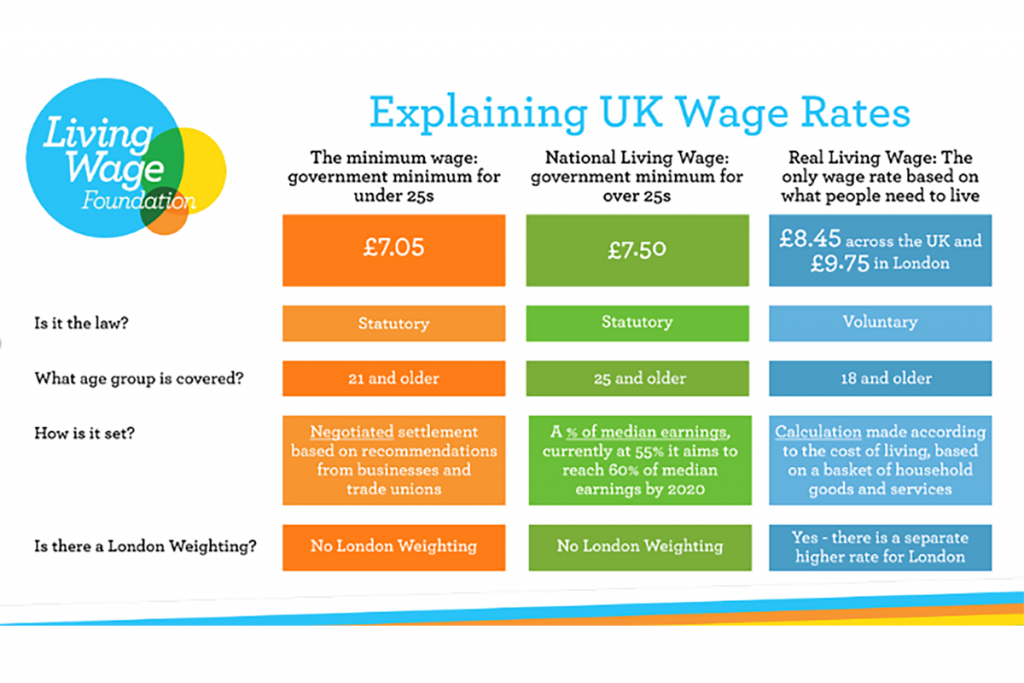According to an industry report by the Association of Convenience Stores, the number of C-Sector jobs has declined 5% over the past year because of an increase in the national living wage and national minimum wages. There are currently 370,000 people working in the sector compared with 390,000 in 2016. In 2015 there were 407,000 convenience store employees.
The convenience sector is now worth £38bn, making it comparable in size to industries like oil and gas, defence and recruitment. Convenience store sales are forecast to increase to £40bn over the next year, and the amount invested by convenience stores is also rising, amounting to £858m over the past year of which 33% went on improved refrigeration; 28% on better lighting; and internal building maintenance accounting for 26% of the total cost.
ACS chief executive James Lowman said: “Convenience stores provide flexible employment for over 370,000 people across the UK, but this number has fallen as a result of significant increases in the National Minimum Wage and National Living Wage, as well as other associated employment costs, alongside rising costs in other areas like business rates. In many cases, store owners are having to reduce the number of hours that their staff work whilst picking up extra hours themselves.
Despite the pressure faced by retailers as a result of increasing costs in their business, the competition that convenience stores face has never been stronger. Convenience stores have to compete not just with other similar retailers, but also with food-to-go outlets, coffee shops, supermarkets and the growing presence of online grocery retail, which is why there remains significant investment in new technology and services within the sector.
The intense competition and rising sales in the convenience sector demonstrate that local shops have never been more relevant to the lives of consumers, which is why a number of larger companies are now running convenience stores and moving into wholesaling or franchising in the convenience store sector. Technology and consumer needs are changing rapidly, so stores are constantly evolving to offer more products and services.”
With falling staffing numbers there is a significant opportunity to invest in technology that helps retailers work smarter, driving the cost of operation down whilst still meeting evolving consumer needs to offer more products, services and deliver on already high expectations.
Paying staff the living wage looks to bring a whole raft of benefits to employers – Enhanced quality of the work by staff, a fall in absenteeism, improved staff recruitment and retention as well as enhanced ethical credentials.
The reality, however, is C-Store operators are having to deliver more with less. Coming in-line with wage costs in light of the living wage is going to be pretty challenging – get it wrong and inevitably somewhere along the way availability, compliance, morale, service and sales are going to suffer.  Below are three ‘practical’ ways to improve both productivity and profitability that if you are a C-Store operator, you might want to consider:-
Below are three ‘practical’ ways to improve both productivity and profitability that if you are a C-Store operator, you might want to consider:-
1: Ensure your store has the right number of staff – so many retailers have the wrong staff, in the wrong stores, in the wrong departments, at the wrong time. By using Metro’s Workforce Management and Time & Attendance modules, you can be confident in having the right people, in the right places, at the right time – it’s as simple as pressing a button. With toolsets designed ‘by retailers, for retailers’ to deliver bottom-up labour scheduling based on Cost to Sale, Sales Forecasting, Role Mapping, Skills and other Productivity factors, Labour matched fully costed work schedules can be quickly and easily published to colleagues.
2: Ensure store tasks are carried out consistently – addressing the variance between best and poor performers is key to delivering a consistent shopping experience that ensures customers spend their money with you. Communicating and measuring task compliance is what Metro’s Unified Comms and Process lines do best. From Daily store checks, audits and Product Recalls through to News items, updated policy information or training videos, everything that needs to be read, watched or completed can be explained, shown and tracked via its simple and intuitive portal – accessible from any PC or mobile device within the store environment there is no longer the need to sit in an office, fill in and file reams of paper – with comprehensive tracking and compliance reporting, achieving a consistent version of what ‘good looks like’ is made much easier.
3: Ensure store staff are doing the right things – anywhere up to 10% of store hours are wasted doing non-productive tasks and activities. For example, store management commonly spend up to 60% of their time checking or completing sales assistant’s tasks (source: Kurt Salmon) – be it ‘checkers checking checkers’ or simply the wrong people, with the wrong skills, working at the wrong times – the administrative burden of managing inefficiency is extremely costly. Metro’s Learning Management module provides managers with an end-to-end learning and accreditation solution that enables store teams to develop their skills so they can do more in and around the store – not only does this allow retailers to mix up the working day for team members but in turn improve morale and job satisfaction.
All three of the above suggestions carry directly through to how your staff serve their customers – if a store team is multi-skilled, well-motivated and happy then they will perform better and be more productive. To discuss this and other ways Metro can help your business improve sales, productivity and profitability drop us a line for an informal discussion.
Recent Comments